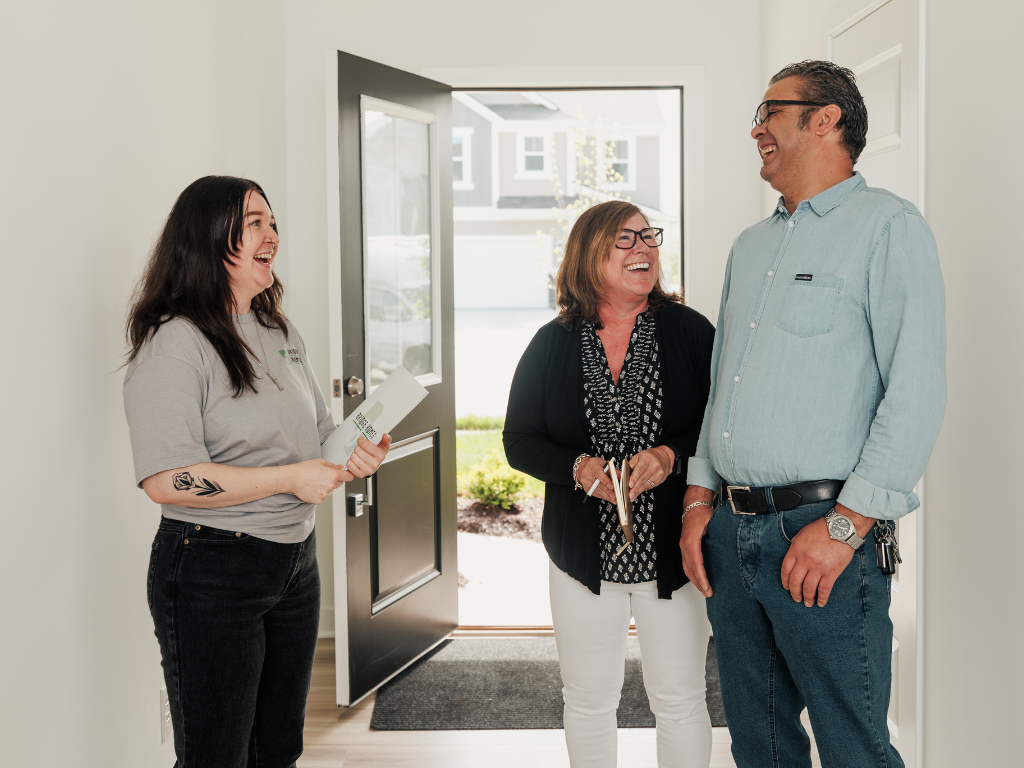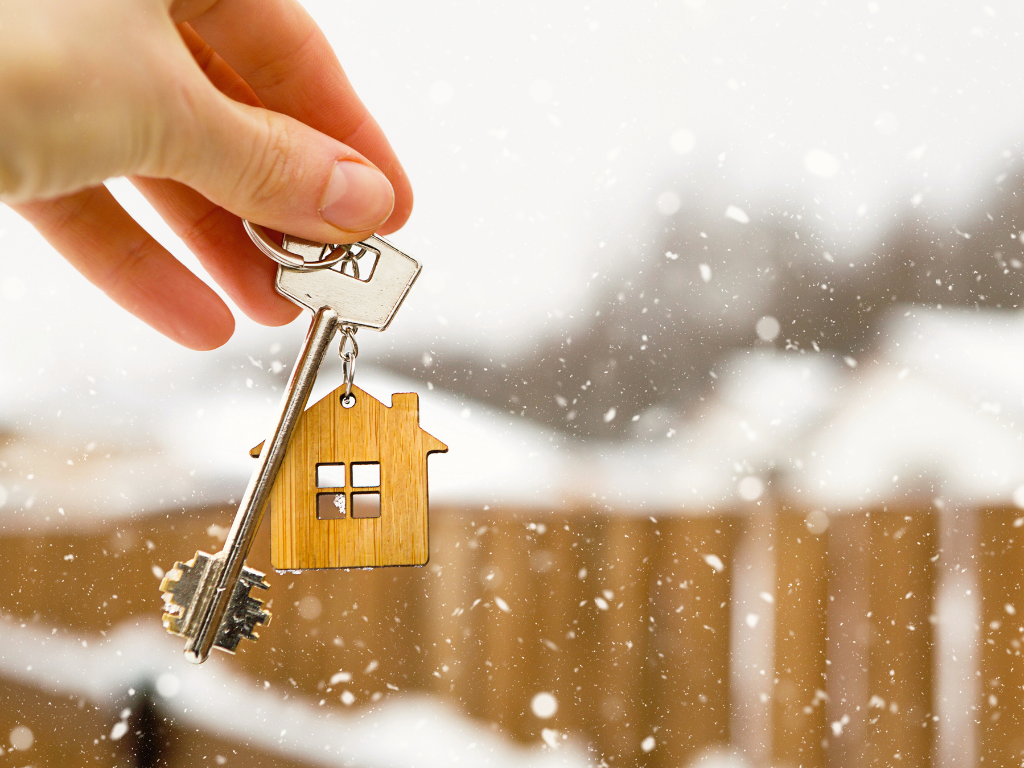Climate Home Preparation: Hurricane and Flooding Season
Protect your rental home and family with Bridge Homes’ guide to preparing for hurricanes, floods, and severe weather throughout the season.
.jpg)
INTERESTING ARCHITECTURE TRENDS
Lorem ipsum dolor sit amet consectetur adipiscing elit obortis arcu enim urna adipiscing praesent velit viverra. Sit semper lorem eu cursus vel hendrerit elementum orbi curabitur etiam nibh justo, lorem aliquet donec sed sit mi dignissim at ante massa mattis egestas.
- Neque sodales ut etiam sit amet nisl purus non tellus orci ac auctor.
- Adipiscing elit ut aliquam purus sit amet viverra suspendisse potenti.
- Mauris commodo quis imperdiet massa tincidunt nunc pulvinar.
- Adipiscing elit ut aliquam purus sit amet viverra suspendisse potenti.
WHY ARE THESE TRENDS COMING BACK AGAIN?
Vitae congue eu consequat ac felis lacerat vestibulum lectus mauris ultrices ursus sit amet dictum sit amet justo donec enim diam. Porttitor lacus luctus accumsan tortor posuere raesent tristique magna sit amet purus gravida quis blandit turpis.

WHAT TRENDS DO WE EXPECT TO START GROWING IN THE COMING FUTURE?
At risus viverra adipiscing at in tellus integer feugiat nisl pretium fusce id velit ut tortor sagittis orci a scelerisque purus semper eget at lectus urna duis convallis porta nibh venenatis cras sed felis eget. Neque laoreet suspendisse interdum consectetur libero id faucibus nisl donec pretium vulputate sapien nec sagittis aliquam nunc lobortis mattis aliquam faucibus purus in.
- Neque sodales ut etiam sit amet nisl purus non tellus orci ac auctor.
- Eleifend felis tristique luctus et quam massa posuere viverra elit facilisis condimentum.
- Magna nec augue velit leo curabitur sodales in feugiat pellentesque eget senectus.
- Adipiscing elit ut aliquam purus sit amet viverra suspendisse potenti .
WHY IS IMPORTANT TO STAY UP TO DATE WITH THE ARCHITECTURE TRENDS?
Dignissim adipiscing velit nam velit donec feugiat quis sociis. Fusce in vitae nibh lectus. Faucibus dictum ut in nec, convallis urna metus, gravida urna cum placerat non amet nam odio lacus mattis. Ultrices facilisis volutpat mi molestie at tempor etiam. Velit malesuada cursus a porttitor accumsan, sit scelerisque interdum tellus amet diam elementum, nunc consectetur diam aliquet ipsum ut lobortis cursus nisl lectus suspendisse ac facilisis feugiat leo pretium id rutrum urna auctor sit nunc turpis.
“Vestibulum pulvinar congue fermentum non purus morbi purus vel egestas vitae elementum viverra suspendisse placerat congue amet blandit ultrices dignissim nunc etiam proin nibh sed.”
WHAT IS YOUR NEW FAVORITE ARCHITECTURE TREND?
Eget lorem dolor sed viverra ipsum nunc aliquet bibendumelis donec et odio pellentesque diam volutpat commodo sed egestas liquam sem fringilla ut morbi tincidunt augue interdum velit euismod. Eu tincidunt tortor aliquam nulla facilisi enean sed adipiscing diam donec adipiscing ut lectus arcu bibendum at varius vel pharetra nibh venenatis cras sed felis eget.
Living in an area with a designated hurricane season or flooding season offers an opportunity to proactively prepare your home for safety, ensuring you are well-equipped to protect your property during this period. In the Pacific, hurricane season typically commences around May 15, while in the Atlantic and Caribbean regions, it begins around June 1 and lasts until November 30 (Centers for Disease Control and Prevention, n.d.). If you live in a coastal region, hurricane season is an annual event that can cause storms, flooding, high winds, damage to buildings, and power outages, all of which can become a safety hazard and cause damage to your home (Fann-Im, n.d.).
While it's essential to be mindful of the hurricane season, it's also wise to recognize that flooding can occur year-round. Flooding is defined as any area of typically dry land that becomes submerged in water. Flooding can occur anywhere in the U.S. where there is heavy rainfall, poor urban and house planning, and locations near bodies of water such as rivers, lakes, streams, or anywhere near the coastal regions. Being prepared for both hurricanes and flooding ensures a well-rounded approach to safeguarding your home and property. Prepare your house for hurricanes and flooding this upcoming season with a few home and safety tips for minimizing damage and keeping your household safe.
Prepare your home for flooding
Living in flood zones is extremely common, with more than 20,000 communities in the U.S. located within a defined flood zone. If you're in the process of moving into a new home or starting your home search, one of the initial steps you should take is to determine whether your prospective house is situated in a flood zone. Flood zones are areas that are highly prone to flooding and are determined by the Federal Emergency Management Agency (FEMA).
On the FEMA website, housing areas are categorized according to their risk factors. High-risk communities are labeled as A or V and moderate to low-risk communities are classified under B, C, or X. An undetermined area would be labeled as C or D (Fann-Im, n.d.). If you discover your house is in a flooding zone and don’t have flood insurance, it is worth looking into.
In preparation for the hurricane and flooding season, the next essential step is to flood-proof your house to the best of your ability. This involves elevating main house utilities, such as electrical and heating systems, to higher floors, particularly if they are currently located in the basement, as this area is most susceptible to flooding. Furthermore, any valuable items, like furniture, electronics, and other valuables, should be relocated to higher ground within your house to avoid damage from potential floods (Fann-Im, n.d.).
In the event your house floods, there are sealing products for walls that can protect against water damage. Sump pumps can also help remove groundwater which will help prevent basements from flooding (Fann-Im, n.d.). If you are renting, these are all great points to discuss with your landlord, before the season begins, to prevent damage to the house.
What to do if your house gets flooded
In the event your home does flood, you can take action to minimize damage in your house and keep its occupants safe.
- Learn how to shut off the electricity and utilities
If a flood occurs, you’ll want to know how to turn off the electricity and utilities. This will help prevent any accidental electrocution or damage to the house. Gas and water valves should also be turned off to eliminate all potential for hazards (Fann-Im, n.d.).
- Have an evacuation plan prepared
Being prepared with an evacuation plan can significantly reduce chaos in difficult situations. It is essential to have a well-thought-out exit route, a designated destination, and a couple of backup routes ready. This way, you'll be equipped with alternatives in case your main route becomes inaccessible due to flooding or congestion from other evacuating individuals (Fann-Im, n.d.).
- Replenish your supplies
If you are faced with flooding in or around your house, you’ll want to have supplies readily available for use. Some supplies beneficial to have on hand are battery-operated flashlights, bottled water or access to fresh drinking water, canned food, and any necessary medications. It is advisable to have enough supplies to last a minimum of 3 days for every member of your household (Fann-Im, n.d.).
Prepare your home for hurricanes
Due to heavy rainfall and extreme winds, hurricanes can become disastrous. Although you can’t completely prevent your house from being affected by the storms altogether, there are a few steps you can take to minimize the damage.
Before a hurricane makes landfall, you should have your roof inspected to ensure it is secured and sealed properly. Since the roof of your house is most exposed to the storm, you might experience damage to the roof such as missing shingles, decking, water leaks, or even roof sagging or collapse. Hurricane straps can also help protect your roof against high winds and water damage (Pope, 2022).
Additionally, windows and doors are susceptible to greater damage during high winds due to broken tree limbs and loose items flying around during the storm. Installing storm shutters or plywood over your windows and doors can help minimize breakage of these entry points to your home (Pope, 2022).
To reduce water accumulation around the house, cleaning out your gutters and downspouts will ensure they properly divert the water elsewhere. Using sandbags is a great way to keep water away from the house. Stacking sandbags in front of garage doors, basement windows, and other entryways into the house will create a barrier for water to remain outside (Fann-Im, n.d.). If your area is in the path of a hurricane, most local municipalities will have sandbags available for public use (Pope, 2022).
Removing or securing any loose items around your home will prevent them from getting lost and blown away (Fann-Im, n.d.). Any items left outdoors or unsecured may become a potential safety hazard as they can easily get blown around with high storm winds and cause damage to cars and other housing. Trimming nearby trees can also minimize damage caused by loose limbs flying around or falling onto the roof of your house. Make sure the tree limbs are cleared away before the storm makes landfall so they don’t become flying debris (Pope, 2022).
In case of a power outage, it's important to take certain precautions. Shutting off the propane tank and unplugging appliances and electronic devices can prevent power surges when electricity is restored (Fann-Im, n.d.). Additionally, considering the investment in a generator can be beneficial, as it allows you to prolong the shelf life of perishable items, stay comfortable with the use of a fan, and keep your electronic devices charged during the outage (Pope, 2022).
Bridge Homes aims to keep you and your home prepared for any climate events that may occur. Up next in our Climate Home Preparation series: Winter Storms.
Resources:
How to prepare your home for hurricane season


